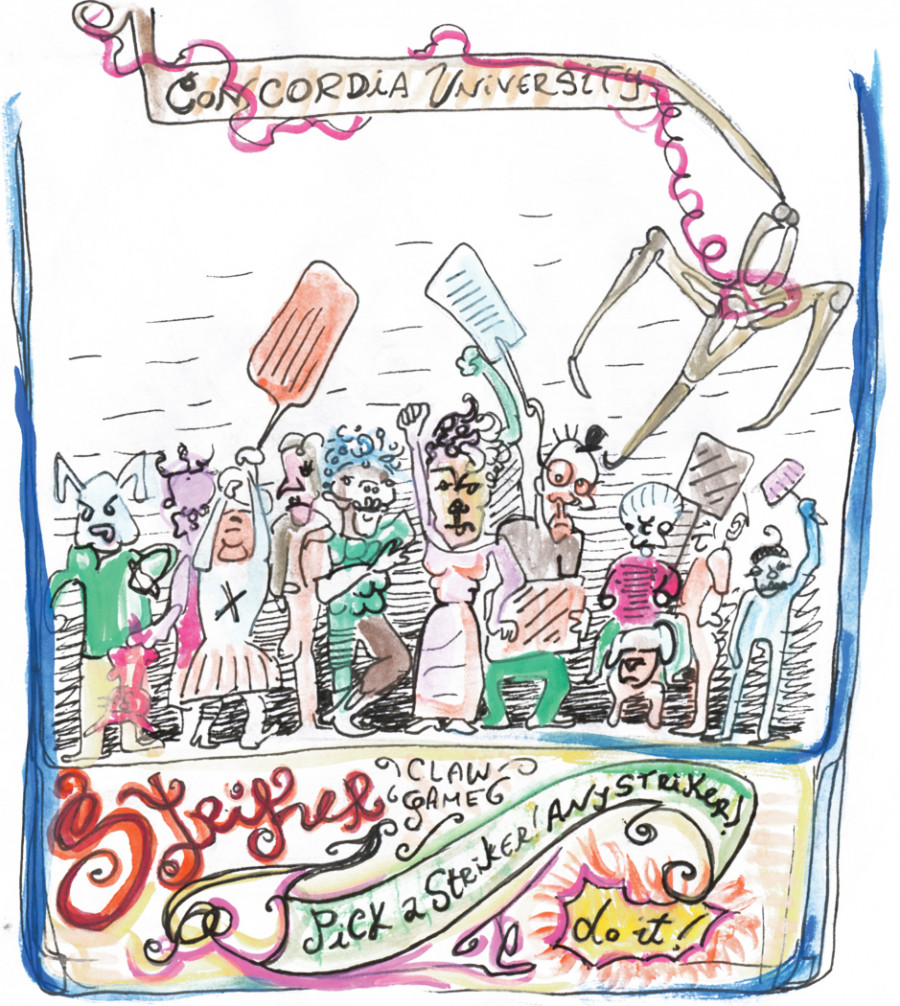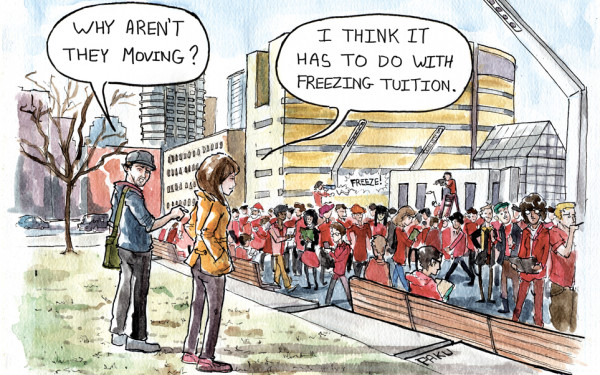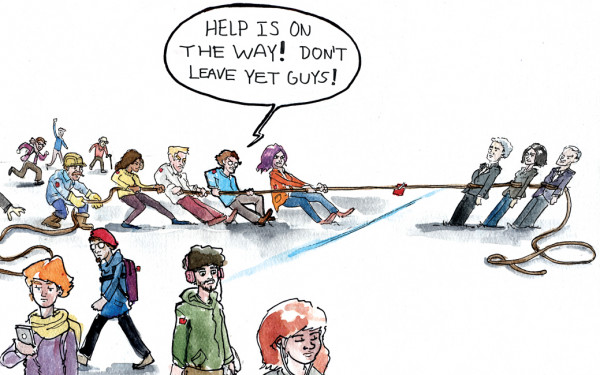Editorial: These Student-Protester Tribunals Are Just for Show
As we fast approach the Sept. 29 tribunal to determine the fates of some of over 25 student-protesters from this past spring’s anti-austerity demonstrations, there is unmistakable apprehension and anxiety for all concerned.
Aside from the fact that any kind of punitive measures put upon socially-conscious and enthusiastic student activists is always going to be disliked by an engaged student body, the complaints brought forth against a seemingly-random group of individuals charged with classroom disruptions seem both dubious and arbitrary. Especially when you consider the aftermath of the much larger and more significantly disruptive protests in 2012, where students had their complaints waived, the protests that occurred earlier this year were negligible in comparison.
A major problem throughout the events is the general aversion and apathy from the majority of Concordia’s student body, who don’t take an interest in school politics and student activism. It’s a highly sympathetic position, as most students will tell you, that they have chosen to spend their precious time and money at university to receive an education, certification and/or accreditation. The Link captured some tension during one class disruption in the Hall building on March 23, as students and protesters shouted and almost came to fisticuffs.
It is important to remember that these protests were inspired out of not only provincial movements, but also solidarity with a global scene that saw anti-austerity protests rock the capitals of states around the world. Governments are increasingly squeezing on their citizenry as the effects of neoliberal economics have become catastrophically evident.
Concordia President Alan Shepard and former Chief Financial Officer Patrick Kelly have previously discussed the detrimental effects austerity measures have had at the school. Shepard sides, in theory, with anti-austerity rhetoric, but his opinion differs on how to go about combating provincial cuts.
The status quo, no matter how it presents itself with good intentions, has no interest in protesting anything, obviously, so the duty falls on our society’s best and brightest, students. As for the annoyed and inconvenienced students who chose to bury their heads in the sand, perhaps it is that very same sense of apathy they had for the anti-austerity protests that will seal the fates of the over 25 students charged, since the tribunal proceedings seem to be going ahead at full steam.
Other than the generally disinterested student population, it is the university who has become a co-complainant, representing a few ticked-off faculty members who had the holy sanctity of their classrooms disrupted. The strikes were voted on and conducted legally as per the appropriate regulations and even authorized by the university who promoted days of dialogue and reflection.
Once referring to the protests as legitimate strikes, the university seems to be playing a different tune now and is determined to uphold a no-nonsense attitude to make an example of the randomly selected of student participants. The parallels between this tribunal and those conducted around the world throughout history are plainly seen, as a powerful administration seeks to strike fear and intimidation against future protests, regardless of their legality. These show trials are even more apparent at our politically active sibling school UQÀM, where one prominent student politician and activist was expelled.
With each passing day, the grip of the powerful becomes stronger and the oppressed, students seeking the highest standards of education, may have very little recourse. The leaders in charge of the tribunal should keep in mind that Montreal has a long and proud tradition of protest, and it is the students who have always been at the forefront. Persecution will only incite their convictions further during the next protest season. And there is always going to be a next protest season.


_600_832_s.png)

2_600_375_90_s_c1.jpg)

05_600_375_90_s_c1.jpg)
